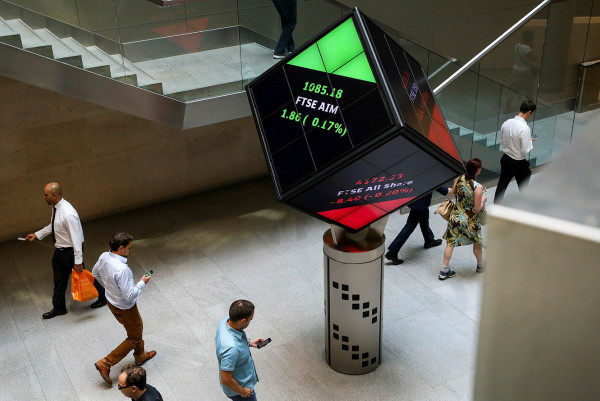

The UK’s blue chip index has risen more than 2 per cent today, breaking the 6,000 points “key milestone” not seen since the beginning of March.
As at mid-afternoon today (April 29), the FTSE 100 had climbed 2.5 per cent to reach 6,094.62 points — the first time the index had risen above 6,000 since March 9.
The FTSE was primarily boosted by Barclays, which saw a 12 per cent boost to its share price after its financial results were published this morning.
Cruise operator Carnival has also helped the index today. Its share price has risen about 12 per cent since markets opened this morning, recovering some of the 70 per cent the coronavirus crisis had knocked off its share price over the past few months.
Centrica, an energy and services company, saw its share price rise 11 per cent today while Rolls Royce jumped 8 per cent.
The risers significantly outweighed the fallers. Ocado was the biggest faller, with 2 per cent knocked from its share price, while Morrisons and GlaxoSmithKline saw their prices drop by about 0.7 per cent.
Markets have taken a battering since the coronavirus crisis shut down borders, closed shops and put the locks on pub and restaurant doors, with the FTSE 100 falling 35 per cent in the five-week period from February 24 to March 23.
But a slow upwards trajectory over the past few weeks has seen the index recoup some of its drastic losses. It has climbed 22 per cent since its low at 4,993 points on March 23, meaning the UK’s blue chip index is now just 15 per cent down on its February 24 level.
Jason Hollands, managing director at Tilney, said the UK market had “burst through a key milestone” today, towards a “new bull market”.
He said: “All this might seem surreal when the economic news is clearly so grave and with many businesses facing an existential threat as a result of the Covid-19 lockdowns.
“However the relationship between stock market behaviour and the real economy is a complicated one, with little correlation between GDP growth and market returns.”
Mr Hollands said markets were “inherently forward looking” and were trying to look ahead to where the real economy would eventually go, rather than tracking the current state of play.
He added: “The stock market priced in a global recession with frightening speed from late February, but it now seems investors - in aggregate - are looking across the valley to an eventual recovery phase, perhaps buoyed by all the talk of lockdown exit plans.”
imogen.tew@ft.com
What do you think about the issues raised by this story? Email us on fa.letters@ft.com to let us know.



